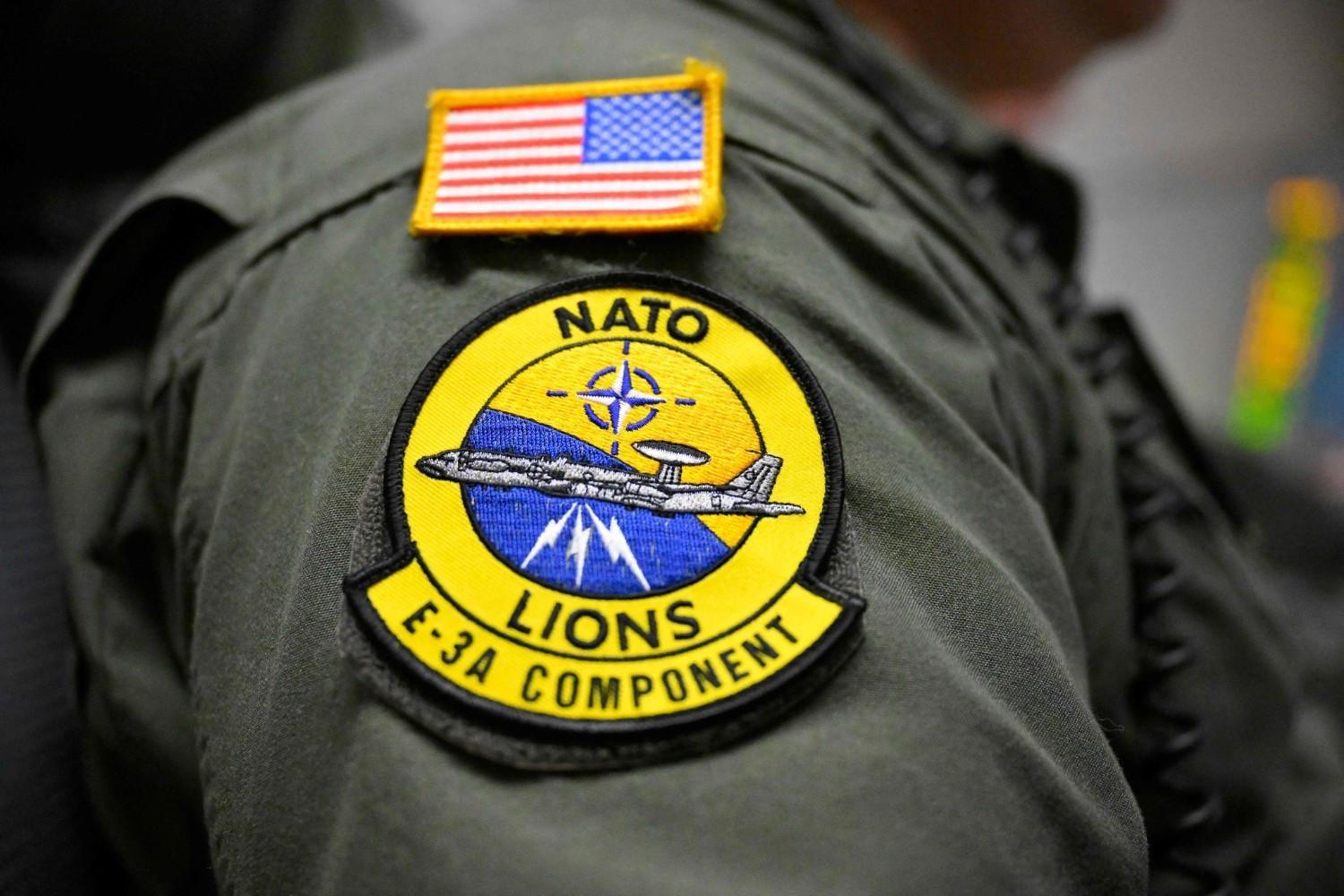
This photograph shows an E-3A Component operational unit badge of the NATO Airborne Early Warning & Control Force (NAEW&CF) sewn onto the sleeve of a surveillance operator's uniform aboard an AWACS (Airborne Warning and Control System) NATO air surveillance aircraft during a flight over Polish airspace as part of the alliance's new Eastern Sentry mission on Sept. 19.
NATO on Tuesday warned Russia to stop an "escalatory" pattern of airspace violations along its eastern flank, after the alliance held urgent talks about a jet incursion over Estonia last week.
"Russia bears full responsibility for these actions, which are escalatory, risk miscalculation and endanger lives. They must stop," NATO's 32 member states said in a statement.
"Russia should be in no doubt: NATO and allies will employ, in accordance with international law, all necessary military and non-military tools to defend ourselves and deter all threats from all directions."
It added that NATO would "continue to respond in the manner, timing, and domain of our choosing" and that the alliance's commitment to its collective defence pact remained "ironclad".
Estonia convened emergency consultations under Article 4 of NATO's founding treaty after armed Russian fighter jets violated its airspace for some 12 minutes on Friday.
That incident — which saw NATO scramble jets — came just over a week after the alliance shot down Russian drones over Poland and led Warsaw to demand similar talks.
In response to the drone raid in Poland, NATO announced it was bolstering its eastern defences to help to counter the threat from Moscow.
Besides Poland and Romania, other eastern flank countries including Romania, Lithuania, Latvia and Finland have seen recent violations of their airspace.
The spike in tensions has spurred fears that the Russia war in Ukraine could be spilling across NATO's border.
In their statement the NATO countries vowed that "allies will not be deterred by these and other irresponsible acts by Russia from their enduring commitments to support Ukraine".
Under NATO's Article 4, any member can call emergency discussions when it feels its "territorial integrity, political independence or security" are at risk.
Tuesday's talks were the third time Article 4 has been invoked since Russia launched its full-scale invasion of Ukraine in 2022, and the ninth time it has been triggered in the alliance's 79-year history.
NATO's collective security is based on its Article 5 principle: if one member is attacked, the entire alliance comes to its defence.
That article has only been invoked once in the history of NATO, following the September 11, 2001 attacks in the United States.
In another development, NATO chief Mark Rutte said Tuesday it was "too early to say" whether drone flights over Denmark were linked to recent Russian violations of the alliance's airspace.
"The Danes are at this moment exactly assessing what happened, to make sure what is behind this. We are in very close contact on this. So it is too early to say," Rutte said, adding he had spoken to the Danish prime minister.